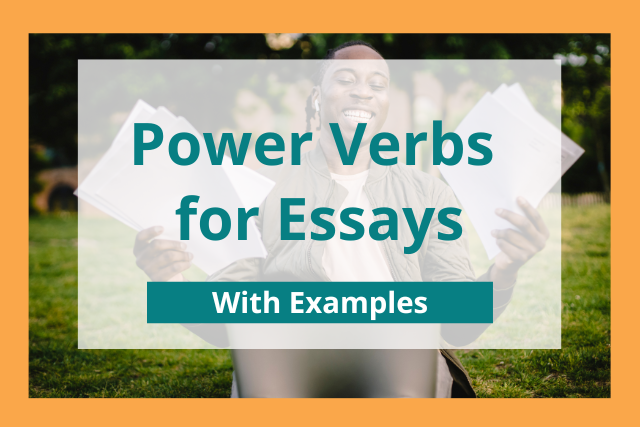
Adding power verbs to your academic paper will improve your reader’s experience and bring more impact to the arguments you make.
While the arguments themselves are the most important elements of any successful academic paper, the structure of those arguments and the language that is used influence how the paper is received.
Academic papers have strict formal rules, but as long as these are followed, there is still plenty of scope to make the key points of the paper stand out through effective use of language and more specifically, the effective use of power verbs.
Power verbs are verbs that indicate action and have a more positive and confident tone. Using them brings strength and confidence to the arguments you are making, while also bringing variation to your sentences and making your writing more interesting to the reader.
The best academic papers will use such verbs to support their arguments or concepts, so it is important that your paper contains at least three power verbs.
ProWritingAid will check your writing for power verbs and will notify you if you have less than three throughout your whole academic paper.
Power Verbs Boost Ideas
Academic papers of all disciplines are often filled with overlong and complicated sentences that are attempting to convey specific ideas and concepts. Active and powerful verbs are useful both to the reader and the author of the paper.
For the reader who is trying to tackle these ideas and concepts, the power verbs provide clarity and purpose. Compare the following sentences:
- This paper will say that there were two reasons for the start of the civil war.
- This paper asserts that there were two reasons for the start of the civil war.
Clearly the second sentence is more confident, direct, and authoritative because it has replaced the dull ‘says’ with ‘asserts.’ For the writer, the power verb expresses confidence in the idea being presented.
Examples of Power Verbs
The following are examples of power verbs that are useful in academic writing, both for supporting an argument and for allowing you to vary the language you use.
Power Verbs for Analysis: appraise, define, diagnose, examine, explore, identify, interpret, investigate, observe.
Power Verbs to Introduce a Topic: investigate, outline, survey, question, feature.
Power Verbs to Agree with Existing Studies: indicate, suggest, confirm, corroborate, underline, identify, impart, maintain, substantiate, support, validate, acknowledge, affirm, assert.
Power Verbs to Disagree with Existing Studies: reject, disprove, debunk, question, challenge, invalidate, refute, deny, dismiss, disregard, object to, oppose.
Power Verbs to Infer: extract, approximate, surmise, deduce.
Power Verbs for Cause and Effect: impacts, compels, generates, incites, influences, initiates, prompts, stimulates, provokes, launches, introduces, advances.
Legal Power Verbs: sanctions, consents, endorses, disallows, outlaws, prohibits, precludes, protects, bans, licenses, authorizes.
Power Verbs that Say: convey, comment, state, establish, elaborate, identify, propose.
Power Verbs that Show: reveal, display, highlight, depict, portray, illustrate.
